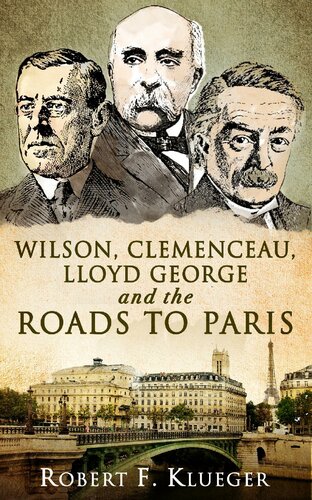

Most ebook files are in PDF format, so you can easily read them using various software such as Foxit Reader or directly on the Google Chrome browser.
Some ebook files are released by publishers in other formats such as .awz, .mobi, .epub, .fb2, etc. You may need to install specific software to read these formats on mobile/PC, such as Calibre.
Please read the tutorial at this link: https://ebookbell.com/faq
We offer FREE conversion to the popular formats you request; however, this may take some time. Therefore, right after payment, please email us, and we will try to provide the service as quickly as possible.
For some exceptional file formats or broken links (if any), please refrain from opening any disputes. Instead, email us first, and we will try to assist within a maximum of 6 hours.
EbookBell Team

4.8
54 reviews"...an immense and highly impressive work of historical/political scholarship. [An] admirably detailed yet still eminently readable account of the lives of three of the twentieth century's most influential politicians..." -Manhattan Book Review
"...impressively researched, with...fresh insights that will appeal to even seasoned diplomatic historians. Readers will be introduced to myriad rich details about the lives of the early-20th-century's most important world leaders." -Kirkus
The three men who met in Paris for the most consequential summit conference of the twentieth century were very different men: Georges Clemenceau, 77, "The Tiger" who had spent five decades fighting for the ideals of the French Republic; David Lloyd George, who grew up in poverty in rural Wales, had entered the House of Commons at twenty-seven, had stood alone in his opposition to the South African War, and who rose to become prime minister and become the face of Britain's defiance to the kaiser; and Woodrow Wilson, the lifelong academic who went from president of Princeton University to the president of the United States in the span of two years.
They were, in many ways, much alike: They were three of the most brilliant men of their age. Each had the ability to charm and sway an audience, whether in the House of Commons, the French Chamber of Deputies or in a Princeton classroom. Yet, the document they produced, the Treaty of Versailles, was the "Carthaginian" peace that sowed the seeds of the Second World War. How did these brilliant men-who knew better-let it happen?
For the first time, Robert F. Klueger traces their tumultuous histories until they reach Paris in 1919, Wilson determined to remake international law based upon the ideals of his Fourteen Points, Clemenceau every bit as determined to make France secure against another German invasion, and Lloyd George, leading a coalition government and a people determined to "make Germany pay," until, at the very last, he tried and failed to reverse what he saw would be a tragic result.